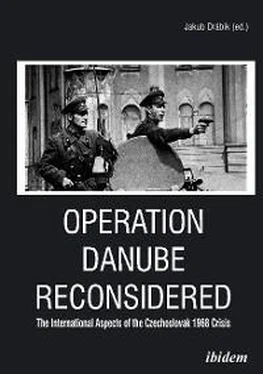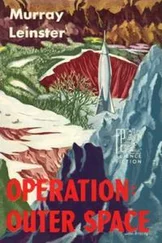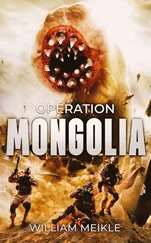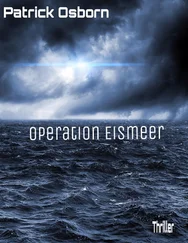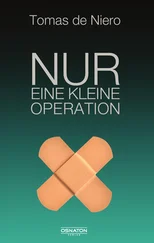We need some radical steps on our part in order to help Czechoslovakia stand on the positions of socialism. Do not be afraid of the word ‘intervention’. After all, we are proletarian internationalists and we are not indifferent to the fate of socialism in other countries. There are issues that can not be regarded as purely Soviet or purely Yugoslav. We have common tasks and responsibilities arising from the principles of proletarian internationalism. We are very concerned and we are not indifferent to how our friends are doing, including in Yugoslavia, ‘where economic reform,’ in comradely terms, it seems to us, has not yet yielded positive results. 16
In such remarks, Tito could see the exposition of the program, which posed a challenge not only for Czechoslovakia, but also for Yugoslavia. For his part, the Yugoslavian leader made some critical remarks on the policy of Dubček and his team, but at the same time made it clear that he supported the current Czechoslovak leadership, suggesting that, if assisted, it could cope with the situation. Thus, the Soviet leaders had to take note that any military or otherwise coercive action against Czechoslovakia would hardly find the support of the Yugoslav side. The negative reaction of Titoist Yugoslavia as well as of the national-Communist Romania on the August Intervention is well known. Recently published documents give us some new details. His extremely negative attitude to the intervention (which dealt in his opinion a severe blow to the idea of Socialism on the international level), Tito expounded to the Soviet ambassador Ivan Benediktov, whom he received on August 31. As for Yugoslavia, Tito made it clear to the ambassador that the Yugoslavs themselves solve their problems and will not allow anyone from outside to interfere in their affairs. If anybody threatens, it does not matter from the West or from the East, “Yugoslavia,—as Tito put it,—will fight resolutely, defending its independence. This can not be doubted”. 17
Some months later this line changed to some extent. The next meeting with Benediktov Tito held on October 19. By this time, under pressure of Moscow an agreement on the temporary stay of Soviet troops in Czechoslovakia had already been signed (following the results of the bilateral Soviet-Czechoslovak summit meeting held on October 3–4, 1968). This somewhat calmed the Yugoslav leader, who apparently decided to stop raising the Czechoslovak question. Tito told the Soviet ambassador: “Goodwill is important now. I said today that I see no reason that every day in our newspapers be written about Czechoslovakia. In Moscow, an agreement was signed. We would not want to interfere in its implementation”. 18And on September 4, 1969 (already after considerable personnel changes in the party-state apparatus, the removal of many reformers from responsible positions) Tito, receiving the Minister of Foreign Affairs of the USSR Andrei Gromyko developed his position. He confirmed his and the entire Yugoslav leadership’s view that the military invasion caused “great damage both to socialism in Czechoslovakia and to socialism in general”. “We spoke”, he continued, “we took our principled position on the events in Czechoslovakia and we do not back down from it. But at the same time, we considered that the situation around Czechoslovakia should not be dramatized, and we were able to minimize publications in our press. In the end, we cannot be more Czech than the Czechs. Let the Czechs and Slovaks themselves decide this question. And with Czechoslovakia, despite the fact who is now in power, we seek good relations”. 19By the autumn of 1971, when the first meeting between Brezhnev and Tito after a 3-year interval took place, the disagreements on the Czechoslovak issue were not more a factor which seriously affected the Soviet-Yugoslav relations.
In May 1968, Prime Minister Alexei Kosygin visited Czechoslovakia, hе met with many members of the Communist elite and came to the conclusion that the positions of those whom Moscow considered to be some kind of alternative to the reform line of Dubček’s team were very weak. The idea of conducting military maneuvers on the territory of Czechoslovakia in order to exert forceful pressure on its leadership was not abandoned (the maneuvers took place in late June). At the same time, the decision was made to influence Dubček and his team, in order to correct their course, which was considered in Moscow to be unacceptable. In June such kind of line was dominant in Moscow. It was reassessed only in the end of June after the publication on June 27 of the program document of the Czech non-communist intellectual opposition “2000 thousand words”, written by Ludvík Vaculík This document was perceived by the Soviets as a sign that the communist leadership in Czechoslovakia had absolutely lost the control over the situation, the non-Communist opposition had seized the initiative in developing a reform program, and this created a real threat to the Communist monopoly on power 20.
In July, the leaders of the USSR prepared military action—covering all details, including propaganda. The declarations of the new Czechoslovak government were worked out and approved at the Politburo session on July 26–27, 21but the Soviets also gave Dubček’s team the last chance to “improve” the situation according their expectations. As is known well, new attempts to exert pressure on him were made in late July during bilateral talks at Čierna nad Tisou and in early August at a multiparty summit in Bratislava (the final declaration, which anticipated some of the theses later at the core of the Brezhnev doctrine) 22.
The views of all the members of the Soviet leadership can be reconstructed on the basis of records of their notes both at meetings of the Soviet Politburo and during bilateral talks at Čierna nad Tisou. 23Without exception, all were sure that it was necessary to put an end to the reform processes in Czechoslovakia, since they were leading to a weakening of the monopoly power of the Communist elite. However, there were some differences in assessing the methods of action. This was manifested, for example, in a clash at a Politburo meeting by the more moderate Kosygin with a more radical Yurii Andropov, KGB chief. Andropov was at that time only a candidate member of the Politburo, but the comrades paid special attention to his opinion because they knew that he had a real experience in Hungary as the Soviet ambassador during the 1956 revolution 24. Andropov often turned to the experience of the Hungarian events, trying to draw parallels with what was happening in Czechoslovakia. He used to remind his colleagues that the so-called “counterrevolution” was preceded by a lengthy ideological preparation led by writers, journalists, intellectuals 25.
As for Brezhnev, caution and indecisiveness were fully manifested in all his activities before intervention. On the one hand, he knew very well that if Communist power in Czechoslovakia were to weaken and the political system and economic model were to be reformed and become less like Soviet models, his party comrades would use it against him as the party leader. His position at the head of the party was not yet sufficiently strong in 1968 and the weakening of Soviet influence in Czechoslovakia could be used by his rivals as an occasion for removing him from office, as well as Khruschev just four years before. On the other hand, Brezhnev for a long time did not see in Czechoslovakia any strong and influential alternative to Dubček’s team which would be realistically supported by Moscow. Gustáv Husák was supported as the candidate for the top position in the party only after August 21 when—after the examining other candidates—Moscow came to the conclusion that they were even weaker and unacceptable for various reasons (not least their unpopularity, the lack of minimal support from below). We can also deduce that in the Kremlin they could realize that it was possible to make more active use of Slovak nationalism against the Prague reformers, and that this was an important argument in favor of Husák.
Читать дальше
